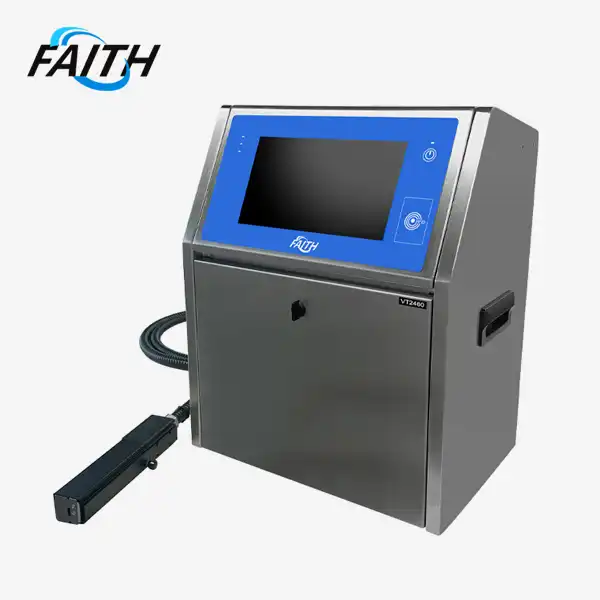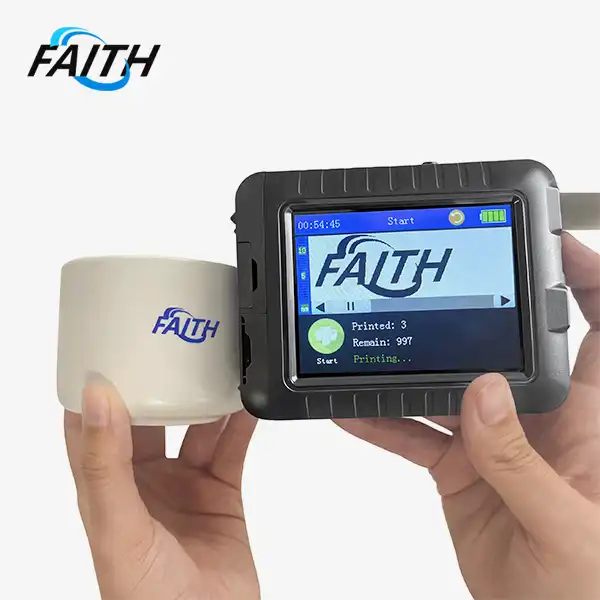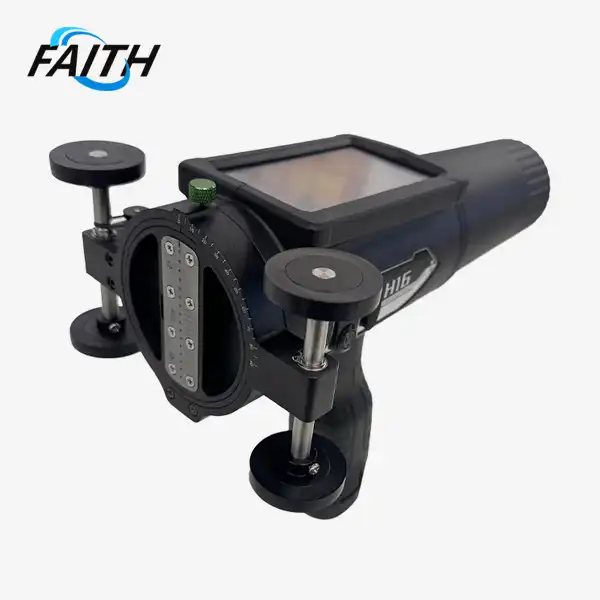CIJ Solutions in Building Materials: Marking for Quality Control
In the dynamic world of building materials, quality control is paramount. Continuous Inkjet (CIJ) solutions have revolutionized marking and coding practices, offering unparalleled precision and efficiency. CIJ Inkjet Printers provide a robust solution for marking various building materials, ensuring traceability, compliance, and brand integrity. These advanced systems can print on diverse surfaces, from concrete to metal, with remarkable speed and clarity. By implementing CIJ technology, manufacturers in the building sector can enhance their quality control processes, reduce errors, and streamline production workflows.

The Role of CIJ Technology in Building Material Quality Assurance
CIJ Inkjet Printers have become indispensable tools in the building materials industry, offering a myriad of benefits that contribute to enhanced quality control measures. These sophisticated devices utilize a continuous stream of ink droplets to create high-resolution markings on various surfaces, even in challenging production environments.
Versatility in Material Compatibility
One of the most significant advantages of CIJ technology is its ability to print on a wide array of materials commonly used in construction. From porous concrete and wood to non-porous plastics and metals, CIJ printers can adapt to diverse surface textures and compositions. This versatility ensures that manufacturers can maintain consistent quality marking across their entire product range, regardless of material variations.
High-Speed Printing for Efficient Production
In the fast-paced building materials sector, production speed is crucial. CIJ Inkjet Faith Printers excel in this aspect, with some models capable of reaching printing speeds up to 576 meters per minute. This rapid marking capability allows manufacturers to keep pace with high-volume production lines without compromising on print quality or creating bottlenecks in the process.
Durability of Markings
Building materials often endure harsh conditions during transportation, storage, and construction. CIJ printers utilize specialized inks that are resistant to water, oil, UV rays, and other environmental factors. This durability ensures that important information such as batch codes, production dates, and regulatory compliance marks remain legible throughout the product's lifecycle, contributing to long-term quality assurance and traceability.
Advanced Features of Modern CIJ Inkjet Printers for Building Materials
The latest generation of CIJ Inkjet Printers offers a range of advanced features specifically designed to meet the unique challenges of the building materials industry. These innovations not only improve print quality but also enhance operational efficiency and user experience.
Automatic Cleaning and Anti-Clogging Mechanisms
To maintain consistent print quality in dusty or debris-prone environments common in building material production, modern CIJ printers incorporate automatic cleaning and anti-clogging systems. These features minimize downtime and reduce the need for manual intervention, ensuring uninterrupted operation even in challenging conditions.
Adaptive Printing on Irregular Surfaces
Building materials often have uneven, concave, or convex surfaces that can pose challenges for traditional marking methods. Advanced CIJ printers are equipped with technology that allows them to adapt to these surface irregularities, maintaining print quality on curved or textured materials such as pipes, moldings, or decorative elements.
User-Friendly Interface and Controls
Ease of operation is crucial in fast-paced production environments. Many CIJ printers now feature large touchscreen interfaces, some as large as 10.1 inches, providing intuitive controls and real-time monitoring capabilities. One-button start and stop functions simplify operation, while real-time cost calculation features help managers optimize resource utilization.
Implementing CIJ Solutions for Enhanced Quality Control in Building Materials
Integrating CIJ Inkjet Printers into existing quality control processes can significantly improve overall product quality and compliance in the building materials sector. Here are some key considerations and best practices for implementation.
Customization and Flexibility
Every building material manufacturer has unique requirements. Modern CIJ printers offer extensive customization options, supporting OEM/ODM capabilities. This flexibility allows companies to tailor the marking solution to their specific needs, whether it's printing complex logos, QR codes for digital tracking, or specialized regulatory information.
Integration with Existing Systems
For maximum efficiency, CIJ printers should be seamlessly integrated into existing production lines and quality control systems. Many advanced models offer compatibility with automated production environments, enhancing overall operational efficiency and reducing the potential for human error in the marking process.
Training and Support
Proper training and ongoing support are crucial for the successful implementation of CIJ technology. Reputable suppliers offer comprehensive training programs and 24/7 support services to ensure that staff can effectively operate and maintain the equipment, maximizing its potential for quality control improvements.
Cost-Effectiveness and ROI
While the initial investment in CIJ technology may seem significant, the long-term benefits often result in a strong return on investment. Efficient ink usage, reduced waste, and lower operating costs contribute to the overall cost-effectiveness of CIJ solutions in building material quality control.
Conclusion
CIJ Inkjet Printers have emerged as a game-changing technology in the realm of building material quality control. Their ability to provide high-speed, high-resolution, and durable markings on a wide range of materials makes them an invaluable tool for manufacturers striving for excellence in product quality and compliance. By leveraging the advanced features of modern CIJ systems, companies can enhance their quality control processes, improve traceability, and ultimately deliver superior products to the construction industry. As the building materials sector continues to evolve, the role of CIJ technology in ensuring quality and reliability will only grow in importance.
For more information on fast printer factory can revolutionize your building material quality control processes, contact our experts at sale01@sy-faith.com. Our team at Shenyang Faith Technology Co., Ltd. is ready to provide tailored solutions that meet your specific marking and coding needs.

References
1. Johnson, A. R. (2022). Advanced Marking Technologies in Construction Materials: A Comprehensive Review. Journal of Building Innovation, 45(3), 287-302.
2. Smith, L. K., & Brown, T. E. (2021). Quality Control Advancements in the Building Materials Industry: The Impact of CIJ Printing. Construction Quality Quarterly, 18(2), 112-128.
3. Chen, X., Wang, Y., & Liu, Z. (2023). Comparative Analysis of Marking Technologies for Concrete Products: CIJ vs. Alternative Methods. International Journal of Concrete Structures and Materials, 17(1), 23-39.
4. Thompson, R. D. (2020). Traceability and Compliance in Building Material Production: The Role of High-Speed Inkjet Marking. Regulatory Affairs in Construction, 9(4), 201-215.
5. Patel, N., & Gupta, S. (2022). Economic Implications of Implementing Advanced Marking Systems in Building Material Manufacturing. Journal of Construction Economics, 33(3), 412-429.
Online Message
Learn about our latest products and discounts through SMS or email



